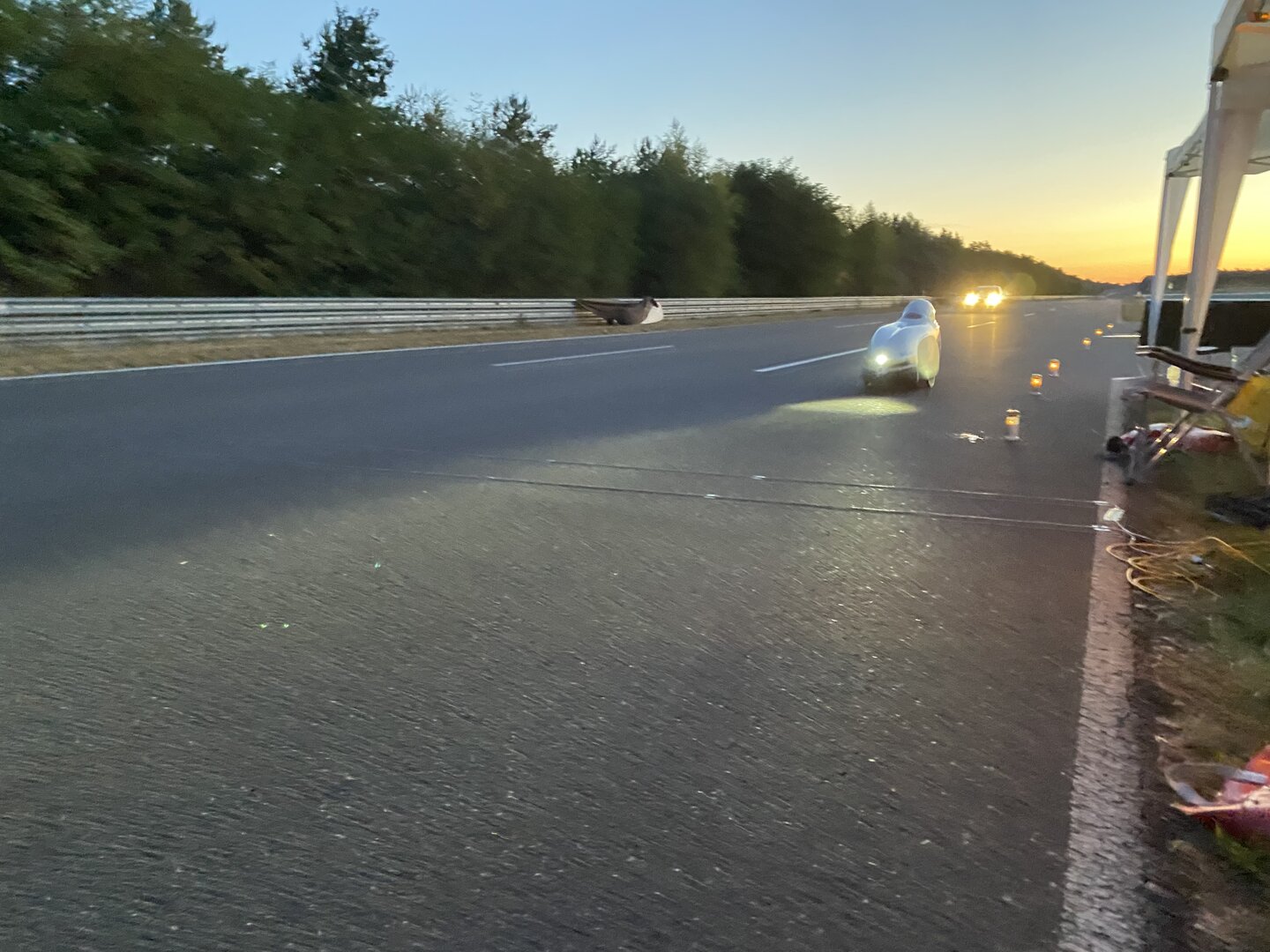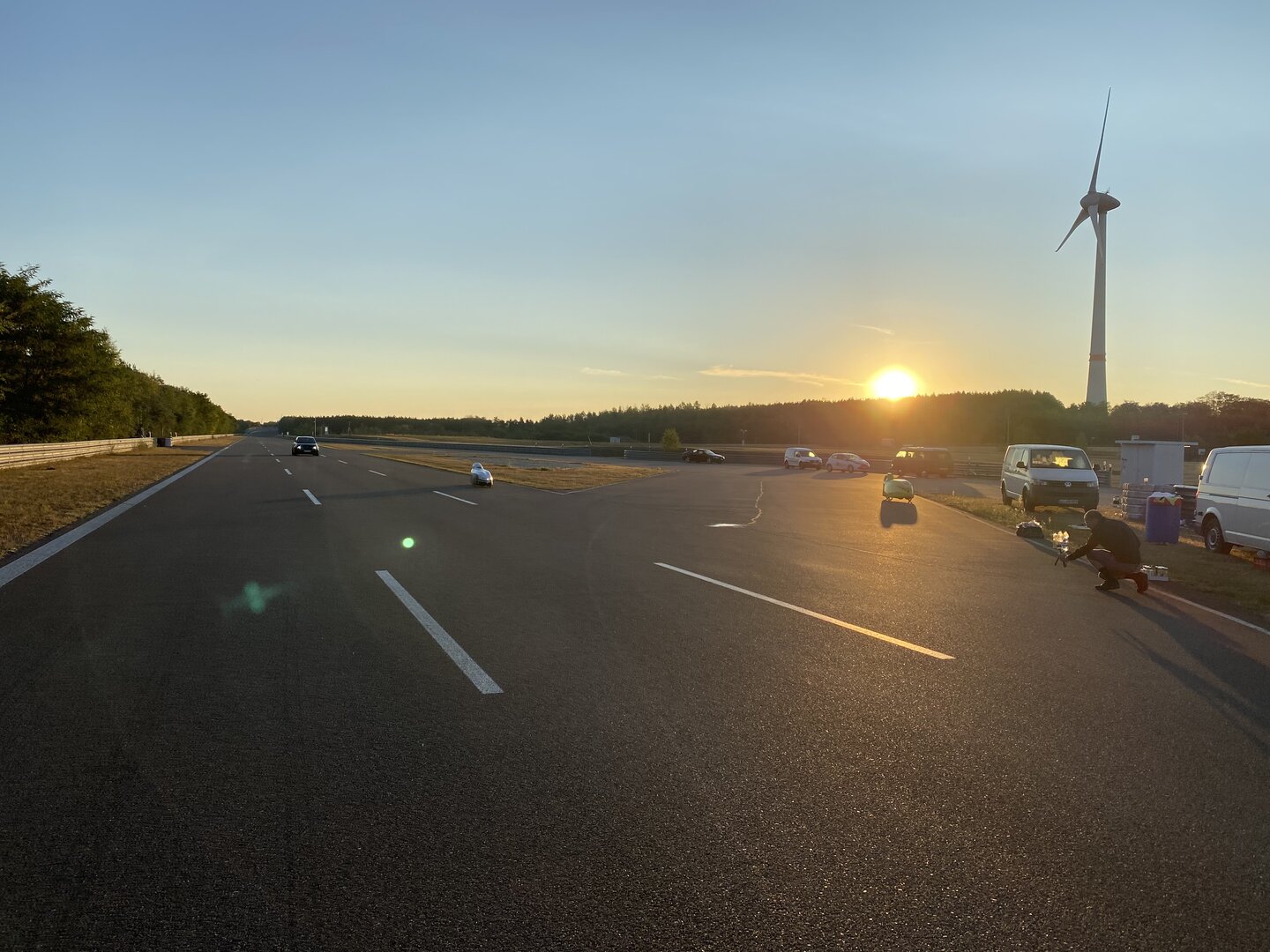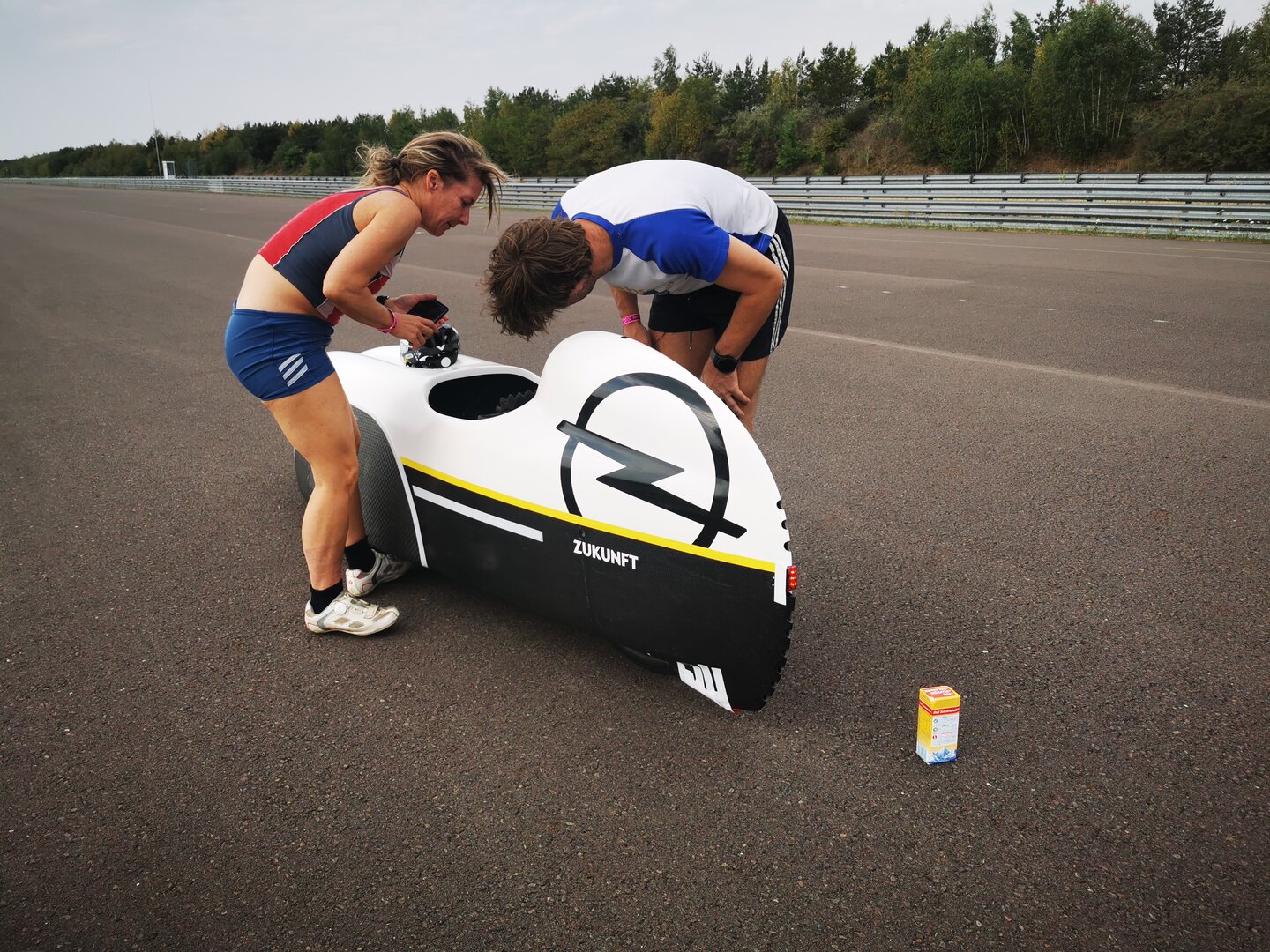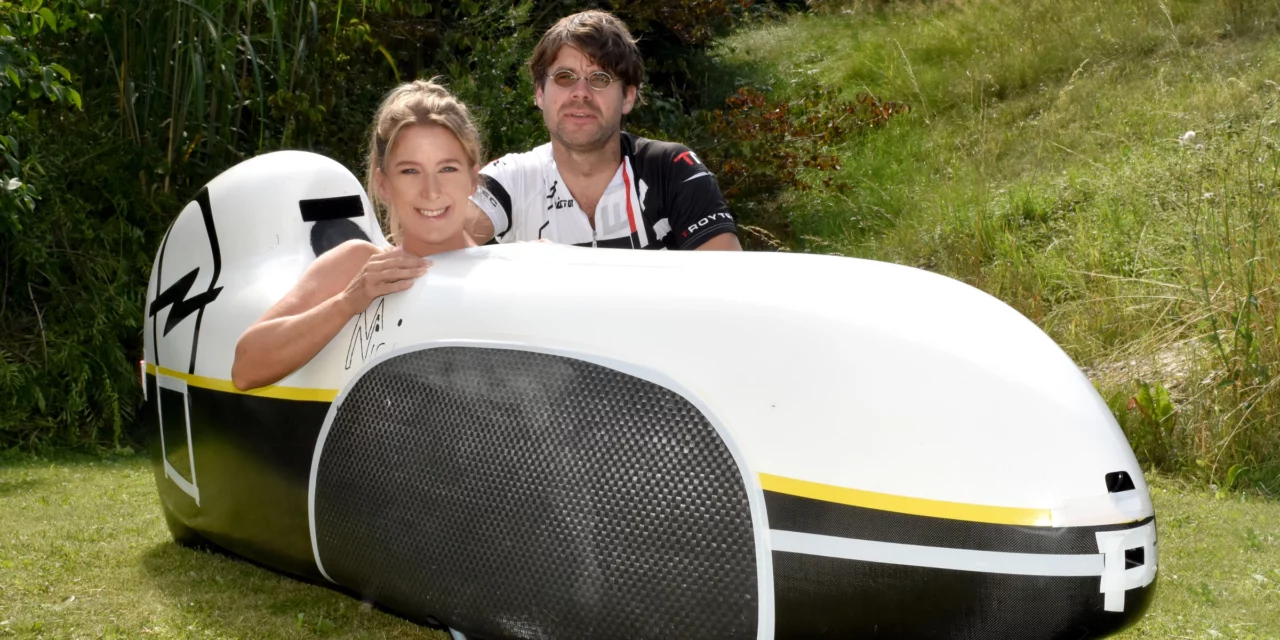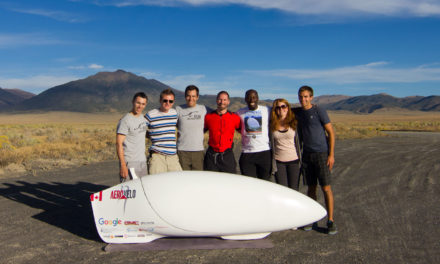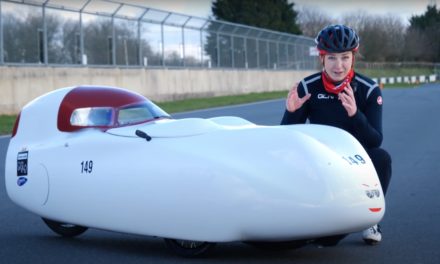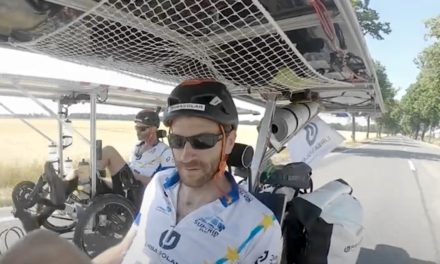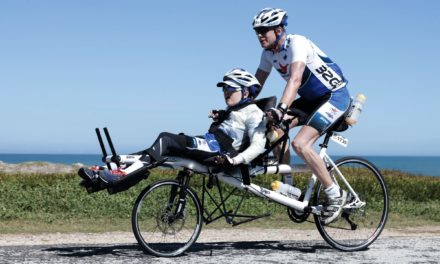She did it. Nici Walde broke the 24 hours women’s world record in long-distance cycling on Sunday, 24th July 2022, at the DEKRA oval in Eastern Germany. One can hardly imagine what everything is involved in such a challenging and very long sports event. It is not only about training, but also quite some organizational and logistic stuff to be done. So here is an interview with Nici about her successful attempt covering many interesting topics.
The motivation is to get as far as humanly possible within 24 hours with muscular power.
When did you start racing velomobiles, and what was your motivation?
I had a colleague in the orchestra, and we rode to work together by racing bike. When he purchased an SL in 2012 and also set the great 24-hour team record in 2014, I was very interested in a velomobile, but I was too small, and I didn’t have the money for it, since I was building my home at that time. When Daniel posted “Looking for a woman for 24 hours” in March 2015 in the German velomobile forum without knowing about me, Jessica Miller from my colleague’s team suggested me. Not knowing if I’d be prepared to set a world record at the age of 41, I met Daniel. Two days later he moved in with me, built my Mini DF, which was finished at the end of June, and on July 11 I used it to set the 12-hour record at DEKRA. We are a dream team – two crazy, ultra-ambitious visionaries who give each other a run for the money. The motivation is to get as far as humanly possible within 24 hours with muscular power.
Where did you find the motivation to break your own record?
Though my record is good, it is not where it could be in good condition. And I don’t feel like settling for where it is just yet.
How did you prepare for such an athletic event?
Originally, I wanted to perform a mixed workout over a longer period of time, alternating between sprinting, threshold training, and long distances. However, in June I had bad flu, so I wasn’t able to train at all for a fortnight. Afterward, I could only train carefully and super slowly until the record took place.
Give us a bit of a background of how difficult it is to organize the circuit and the team needed for the record-breaking attempt.
When performing the 24 hours, there is much more to organize than you might imagine. When I read the requirements of the WUCA (World Ultraycling Association), I thought that we would never make it. Luckily, I had a fantastic team that took care of all the communication and the work toward meeting the requirements for me. I got into contact with DEKRA myself, but later delegated the task of clarifying the details concerning the circuit. The timing was again organized by Hans van Vught, and he even brought people with him. My team had to organize spontaneously on-site to always have a car following me. For this, we didn’t plan ahead at all. However, it worked out well. Then who would be able to sleep where, who would be responsible for what and when, and how would everyone know what I needed. All this had to be settled. And I never know for sure what I will need exactly because I can’t test 24 hours in advance 😁.
Did you need to pay for the DEKRA oval?
We had to pay Dekra oval. They gave us a special price, but we are not able to do this every year…..its REALLY a lot of money, you have to work for it for a LONG time.
Who was on the team? I mean, professions or positions?
Daniel is my mechanic, and he is the one who knows best what I need. The Chief of Observers and responsible for timekeeping was Hans. Observers were Bernhard, Ralf, Patrick, and Werner. Every detail had to be taken note of, and a car had to follow me at all times. The drivers of the car were Veronika, Richard, and Andreas. Bernard took care of the IHPVA, Ralf took care of the WUCA. LOTS of work. Andreas was our doctor. Richard clarified everything with DEKRA and coordinated the team. Martina and Detlef took care of our physical well-being lovingly and with full commitment. And David was responsible for the photo and video. On behalf of the DEKRA team, Doreen was also there the whole time so that we didn’t lack anything. Cheering me on was VERY important. That’s where Momo [our dog] was most effective. And all the death-defying wild animals that also wanted to use the track at night: though not being part of the team, they should not go unmentioned, as they made everything even more exciting. Otherwise, I’m sure I’ve forgotten a lot.
Why should there be a car following you all the time?
The car had to be all the time behind me to have an official who could document every second. To be sure about every kilometer I do.
Can you mention some of the requirements of the WUCA? Was there any commissar from them?
The WUCA requires that “For attempts longer than 24 hours a minimum of 4 officials must be present to allow sufficient rotation and rest.” We planned for 6 officials, of which one had to drop right before the attempt for medical reasons. Even though we still had one official more than formally required, there was this unobtrusive WUCA rule that got my observer team a headache right before the start: “At least one WUCA official must be present (with visual contact to the rider) at all times when the rider is riding”. With the size and development of the DEKRA circuit, we did not have a sufficient number of observers to be positioned strategically such that at all times, at least one of them could be in visual contact with me and have sufficient officials for timekeeping at the same time. The inner part of one of the two large bends was partly concealed by a grove, so even with two observers on each end, the bend might not have been overlooked. Also, the two straights could not easily be overlooked for the whole distance, being 2.3km each. Therefore, as Hans pointed out, the only solution was to have a “Follow Vehicle” trail me, which bound two of my team members (one driver, one observer) during the complete trial. Fortunately, we had two small cars, one electric, available for this. If we had realized this earlier, we would have brought two electric cars – which would have been convenient with a charging station directly at the entrance of the circuit.

Did you have any strategy?
I wanted to ride at 96 Watts for the first 12 hours, then take a break and, if possible, have only very brief stopovers afterward. At [my former record attempt at the] Opel [circuit in Dudenhofen in 2018], with 96 Watts, I rode at 54-56 km/h (33.5 to 34.8 mph), so I was expecting to have at least an average of 53 km/h (33 mph) after the first 12 hours on a dry track, and then a little less at night because of the cold. Unfortunately, due to the strong wind in Klettwitz, at 96 watts there was only 50.5km/h (31.4 mph) on the speedometer. I was extremely disappointed.
Did you even get out of the velomobile during the record ride?
A first stopover I did, as planned, after a good 12 hours, but unfortunately, it took too long. Three hours later, I stopped again, briefer this time, but still more than 15 minutes, since what I needed was not at hand, somehow. Afterward, I only had a very brief stopover with leaving the velomobile, and two hours before the finish, I stopped briefly without getting out.
How did you deal with peeing?
Diapers that are held underneath if necessary.
What everything did you carry with you in the velomobile?
Water, multivitamin juice, pasta (not eaten), muesli, grapes, energy bars, diapers, cell phone, visor wipes, me with pants, top, socks, shoes, and helmet.
Did you have any problems on the way this year? What was the biggest hurdle?
The flu in June, the wind on the track, the bloody cold at night, and the lack of endorphins for being MUCH slower than at Opel [in 2018 before getting caught in the thunderstorm].
Do you plan any other record attempts? Maybe a shorter distance?
If there should be the possibility for further record attempts, 12 and maybe 6 hours would be interesting. However, certainly not this year. 24 hours with GOOD conditions is still my biggest dream. But maybe the effort is simply too great, and after three attempts with different catastrophes, I don’t know whether it makes sense to invest so much again and again. I’m definitely having a lot of fun training, so let’s see what happens next.
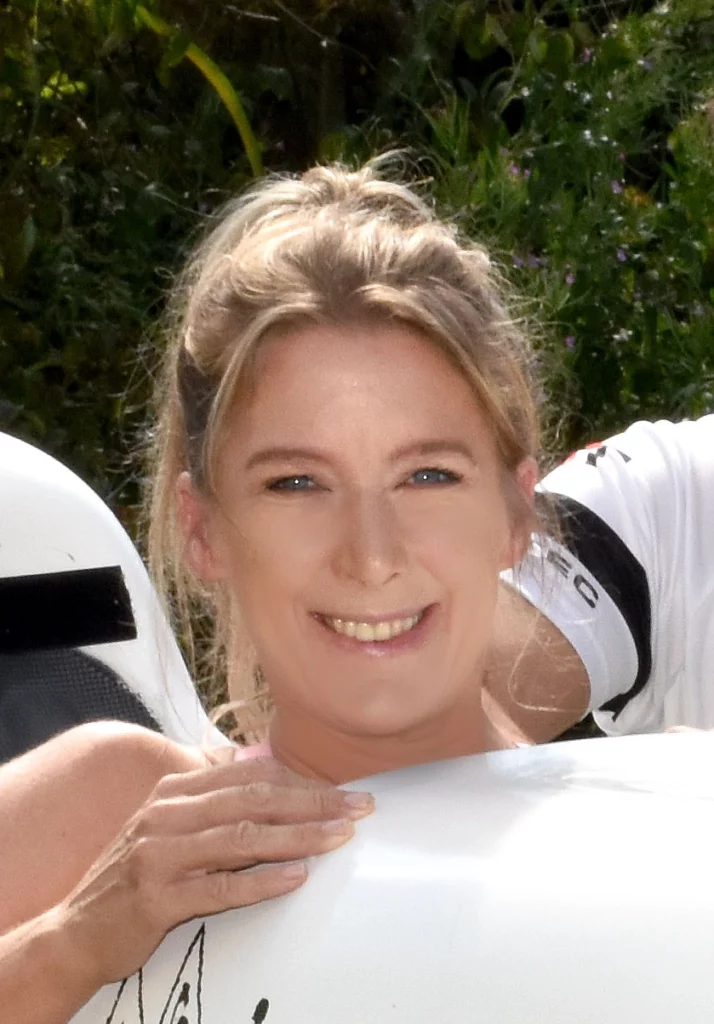
Nici Walde
Year of birth: 1973
Residence: Weil in Germany (near Munich)
Education: Abitur and Diplom (bachelor)
Jobs: Musician (bassoon), Nicis KarbonKunst (velomobiles), management for everything around Daniel and his work
Motto: I have no. Just: Never stop believing in yourself and your wishes
Web: We still have no Website 🙂
